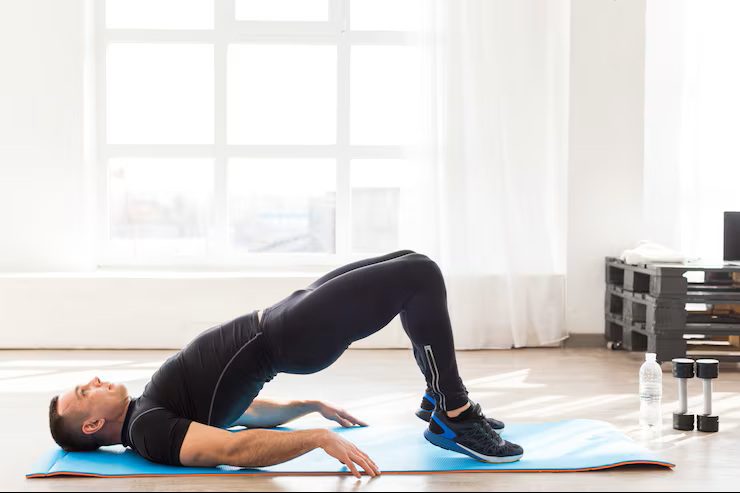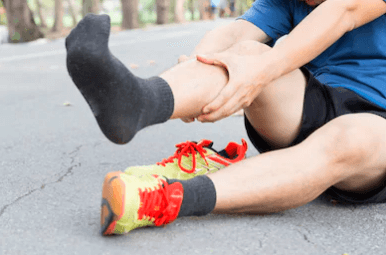Strapping
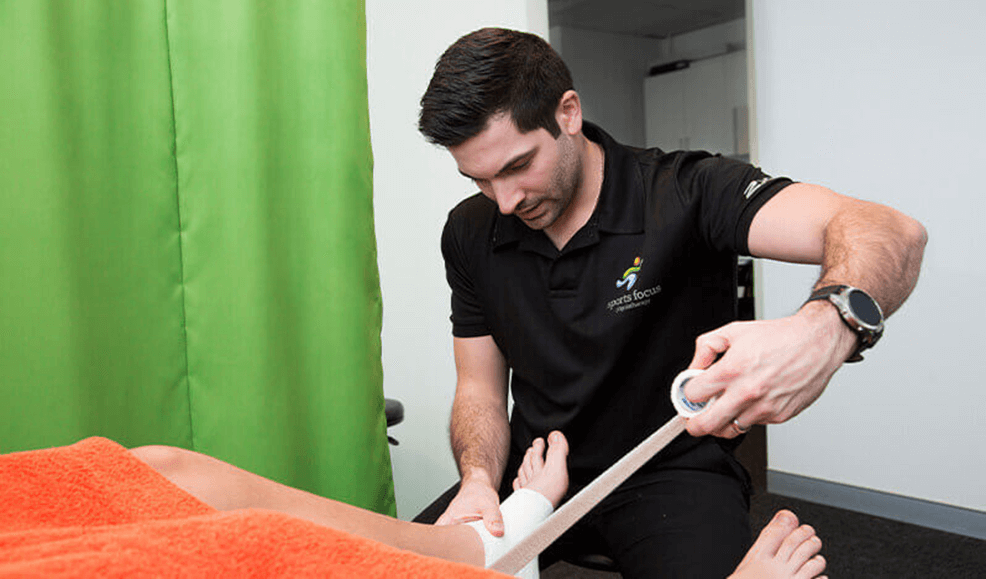
Strapping is a quick, easy and inexpensive way to stabilise a joint. It isn’t too bulky and doesn’t restrict movement too much. You’ll be familiar with strapping if you’ve ever watched or played competitive sports. The major downside to strapping is that it is a temporary fix and shouldn’t be left on for longer than six hours. It can be tough on the skin if you leave it on for too long and it gets sweaty/wet.
Bracing
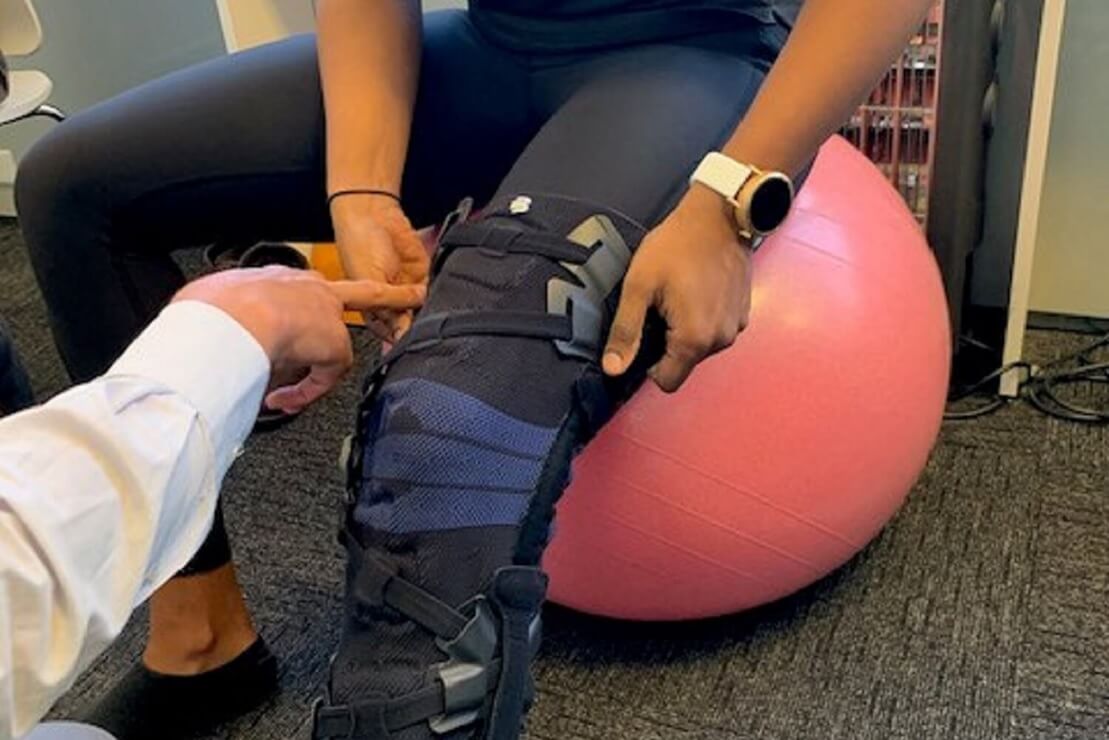
Bracing is usually more substantial and can be expensive if you want a custom, properly fitted piece. You can leave the brace on for extended periods of time and a good brace can even be used every day. Bracing is bulkier than strapping but is great at making a joint or area more stable. We often use a brace when patients have an issue that will stay with them for a long time. A poorly fitted brace can worsen your condition, so it’s important that you see a physiotherapist before you invest.
Kinesio Tape
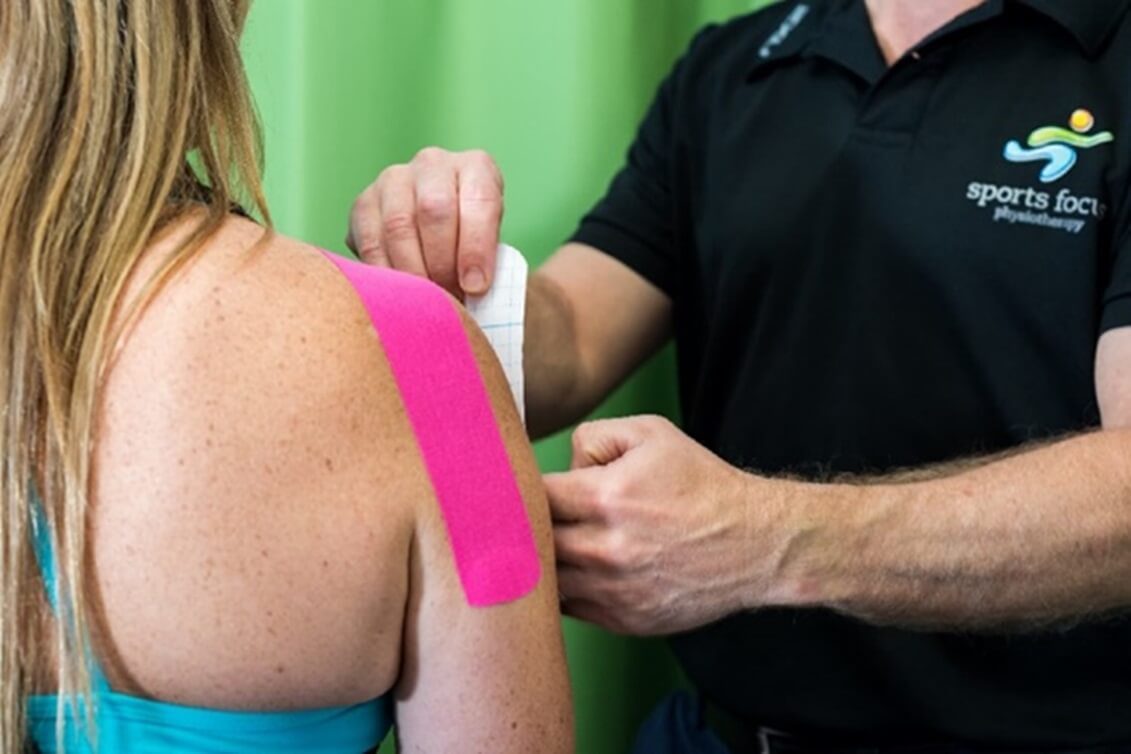
Kinesio tape is a brightly coloured tape that is quite different from traditional sports tape. It’s elastic, like human skin. It offers therapeutic benefits while giving athletes full range of motion. Kinesio tape can:
- Reduce swelling
- Increase contraction of underactive muscles
- Lessen the function of overactive muscles
- Improve proprioception/function.
Appropriate application of kinesio tape depends on your specific injury. That’s why it’s always best to let your physiotherapist show you how to use it.
Do you have an injury that isn’t getting better? Book an appointment online at Sports Focus Physiotherapy today.

